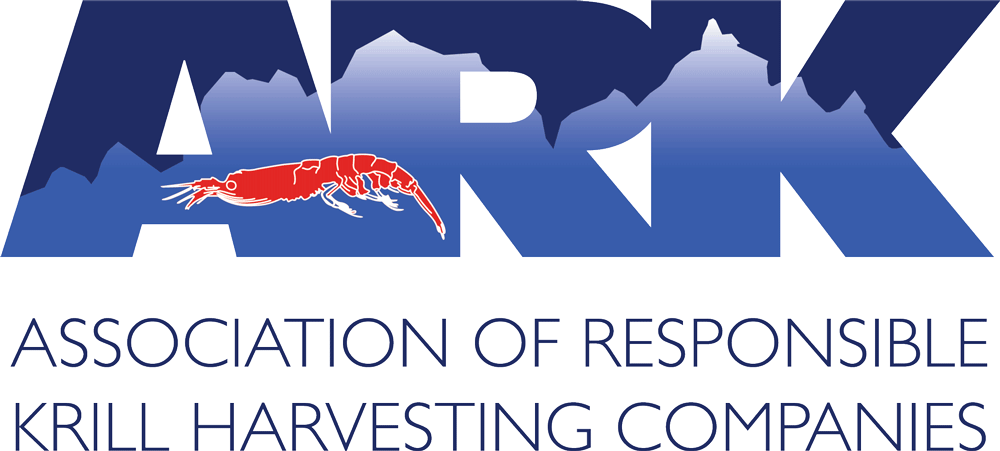ARK Commitment - A progressive action led by the industry sheds light on future management measures
In 2018 the krill industry made a commitment to voluntarily close fishing grounds near penguin colonies during the breeding season. A recent paper highlights the usefulness of this non-official agreement and underlines the importance of industry taking conservation leadership.
CCAMLR has been discussing for some years now the implementation of a modern, adaptive management scheme for the krill fishery to replace the static 'trigger level' established just over three decades ago. Although differences regarding the relative importance of direct and indirect effects of fishing on krill dependant predators versus the detrimental effects of climate change on the whole Antarctic ecosystem remain, there is general agreement on the need to establish a new management system that takes into consideration changes in krill abundance. Conservation Measure 51-07 (see Box 1) is widely seen as a step in the right direction, but the potential expiration of this measure in November 2022 brings uncertainty regarding the delicate balance between environmental change, krill sustainability, and the recovery of baleen whales.
Yet, the answer seems to come from the fishing industry itself. A recent article published online in ICES Journal of Marine Science acknowledges the industry's role, in alliance with environmental NGOs, to protect land-based predators when they are most vulnerable. According to the authors, "[…]Without a replacement for CM 51–07, the ARK VRZ become the only safeguard in Subarea 48.1 for penguin colonies during the breeding season." The ARK Commitment was established in 2018 thanks to a collaboration between the Association of Responsible Krill harvesting companies, ARK, and environmental NGOs (Greenpeace, WWF, the PEW), to implement tangible measures fostering sustainable management of the krill fishery and protect the most vulnerable predators (mainly penguins). The Commitment's most well-known measure is the implementation of Voluntary Restricted Zones (VRZs) around penguin colonies nesting on the Antarctic Peninsula and the South Shetland Islands, effectively protecting 74.3% of Chinstrap, 97.5% of Gentoo, and 91.4% of Adélie penguin colonies in Subarea 48.1 during the breeding season, including all megacolonies recently identified at Heroina, Beagle and Paulet Islands (the Danger IsIands), and Hope Bay.
In agreement with Greenpeace, WWF and the PEW, ARK further its Commitment by adopting in 2020 a year-round protection area of almost 4,500 km2 around Hope Bay (see Box 1), encompassing critical breeding habitat for the Adélie penguin, the most vulnerable penguin species in the Antarctic peninsula region.
"We welcome the results of this recent publication which highlights the effort conducted by the krill fishing industry," commented Valeria Carvajal, President of ARK. "We strongly support the instauration of management measures such as the VRZ that reduce potential effects of fishing while providing opportunities for the industry to develop. The VRZ, along with the new adaptive management strategy being developed by CCAMLR, will secure a long-term, sustainable development of this activity.”
In addition to the VRZ, ARK members collect valuable information for the management of Antarctic krill, from large-scale surveys to local annual surveys on their main fishing areas. The ongoing new krill management for krill discussed at CCAMLR relies on the recurring surveys on krill abundance and a risk assessment to subdivide quotas at smaller than subarea scales. Information collected by fishing vessels will be crucial for the efficient implementation of such a strategy. Current acoustic information on krill collected by ARK-affiliated vessels is being analyzed by research teams in Norway, China and UK and will promptly be presented at ad-hoc working group meetings in CCAMLR.
CCAMLR has agreed to develop a network of MPAs, including in the Antarctic Peninsula area. Godø and Trathan's article considers ARK's VRZ a step forward in this direction, scalable in future as new evidence becomes available. They also proposed new areas to be included in this effort to safeguard against climate change and other pressures while having a minimal impact on fishing operations.
“We all depend on a functioning Antarctic ecosystem. The experience from the CCAMLR MPA in the Ross Sea shows that it is possible to establish a large and effective marine protected area which does not impact fisheries operations to a great extent. These are lessons learned for the Antarctic Peninsula where the krill industry not only collects data for krill management on a large scale but also engages in these voluntary measures while waiting for CCAMLR to find a resolution for spatial and dynamic management in the region”, says Pål Skogrand, VP Policy and Impact, Aker BioMarine.
"We are currently heading towards our first five-year review process of the ARK Commitment, and given current results, we hope to maintain and improve these initiatives for another 5 years," added Dr Javier Arata, ARK Executive Officer.
Box 1. The krill fishery operates mainly in Subareas 48.1, 48.2 and 48.3 of CCAMLR for which a precautionary catch limit of 620,000 tonnes (the ‘trigger level’) was established in 1991. In 2009 CCAMLR established a further subdivision of the trigger level (Conservation Measure, CM 51-07): 155,000 tonnes in Subarea 48.1, and 279,000 tonnes in Subareas 48.2 and 48.3. CM 51-07 is scheduled to lapse in November 2022. The Government of South Georgia & the South Sandwich Islands has also established regulations for the krill fishery around South Georgia Islands, including a 30km protection zone around South Georgia.
In July 2018 ARK established a set of voluntary initiatives to improve the sustainability of the fishery and increase transparency and safety in fishing operations. The VRZs were established to safeguard key penguin colonies during their breeding season (October-February). Starting in December 2020, a year-round VRZ was added around Hope Bay.

